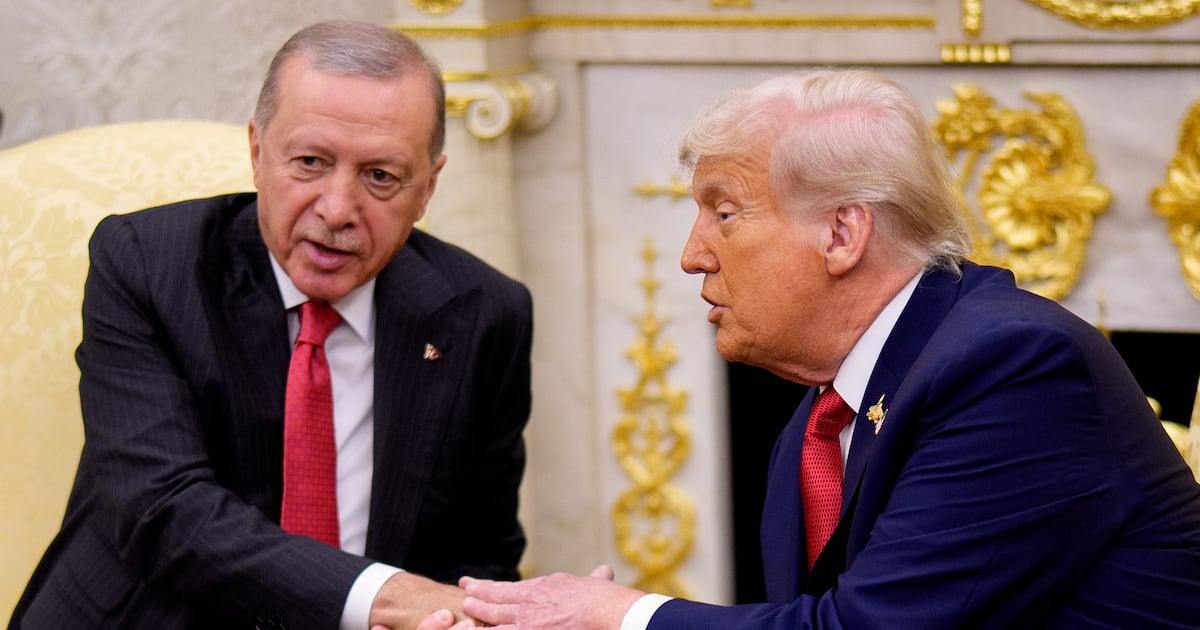World
Trump Presses Erdogan to Halt Russian Oil Purchases Amid Talks

US President Donald Trump urged Turkish President Recep Tayyip Erdogan to cease purchasing oil from Russia during a recent meeting in the Oval Office. This conversation took place against the backdrop of ongoing geopolitical tensions, particularly regarding Russia’s military actions in Ukraine. Trump expressed his desire for Erdogan to stop these oil imports, stating, “I’d like to have him stop buying any oil from Russia while Russia continues this rampage against Ukraine.”
The meeting marked Erdogan’s first visit to the White House in six years and presented an opportunity for the two NATO allies to address their complex relationship. Discussions included trade relations and a range of defense deals, as both nations navigate their interactions with Russia and China. Trump indicated that he would explore Erdogan’s interest in rejoining the F-35 fighter jet program, although he did not guarantee Turkey’s reinstatement.
Trump’s comments reflect a broader strategy aimed at reducing financing for the Kremlin’s military efforts. He recently expressed confidence in Ukraine’s potential for victory against Russia, further emphasizing the United States’ commitment to supporting Ukraine in its conflict with Moscow.
In addition to oil purchases, the two leaders discussed Turkey’s ongoing predicament regarding the F-35 program. Turkey was an initial partner in developing this advanced warplane but was removed from the program after acquiring Russia’s S-400 air defense system. This acquisition led to congressional sanctions targeting Turkey’s defense industry, sanctions that remain in effect.
Trump remarked that if the meeting with Erdogan went well, it might be possible to lift these sanctions “almost immediately.” He noted, “I think he’ll be successful with buying the things he’d like to buy. He needs certain things and we need certain things.”
The F-35 dispute has been a significant point of contention between the United States and Turkey. Ankara has stood firm on its decision to retain the S-400s, despite Washington’s demands for their abandonment. However, Erdogan hopes that a compromise regarding the S-400’s deployment could pave the way for Turkey to acquire 40 F-35 jets.
The leaders also discussed potential purchases of the Patriot missile defense system, a US alternative to the S-400s. Their previous interactions have been marked by tension, notably a strained White House meeting in November 2019 during Trump’s first term. Nevertheless, both nations have considerable incentives to improve their relationship.
Turkey relies on US military and diplomatic support, and its commitment to NATO is seen as crucial for regional stability. Strengthening ties between Washington and Ankara could bolster NATO as the alliance confronts new challenges posed by an increasingly assertive Russia. Additionally, Trump’s administration aims to ease tensions in the Middle East amid ongoing conflicts, including the situation related to Israel and Hamas.
As discussions evolve, the outcomes of these meetings may significantly influence both US-Turkey relations and the broader geopolitical landscape.
-

 Top Stories3 months ago
Top Stories3 months agoTributes Surge for 9-Year-Old Leon Briody After Cancer Battle
-

 Entertainment4 months ago
Entertainment4 months agoAimee Osbourne Joins Family for Emotional Tribute to Ozzy
-

 Politics4 months ago
Politics4 months agoDanny Healy-Rae Considers Complaint After Altercation with Garda
-

 Top Stories4 months ago
Top Stories4 months agoIreland Enjoys Summer Heat as Hurricane Erin Approaches Atlantic
-

 World5 months ago
World5 months agoHawaii Commemorates 80 Years Since Hiroshima Bombing with Ceremony
-

 Top Stories3 months ago
Top Stories3 months agoNewcastle West Woman Patricia Foley Found Safe After Urgent Search
-

 Top Stories5 months ago
Top Stories5 months agoFianna Fáil TDs Urgently Consider Maire Geoghegan-Quinn for Presidency
-

 World5 months ago
World5 months agoCouple Convicted of Murdering Two-Year-Old Grandson in Wales
-

 World5 months ago
World5 months agoGaza Aid Distribution Tragedy: 20 Killed Amid Ongoing Violence
-

 World5 months ago
World5 months agoAristocrat Constance Marten and Partner Convicted of Infant Murder
-

 Top Stories4 months ago
Top Stories4 months agoClimbing Errigal: A Must-Do Summer Adventure in Donegal
-

 Top Stories4 months ago
Top Stories4 months agoHike Donegal’s Errigal Mountain NOW for Unforgettable Summer Views









